Best Easy Commercial Solar Installation for Alberta Businesses
Dean Emerick
May 30, 2023

Looking to install commercial solar panels for your Alberta business, without the hassle?
If you own commercial property or arable land in Alberta, this guide walks you through the step-by-step process for a smooth solar installation. Learn how to navigate local regulations for commercial solar solutions, tap into available incentives, and choose the right installer, because you might be missing out on a revenue stream that's right above you.
Key Takeaways

- Commercial solar installations in Alberta can provide significant cost savings, environmental benefits, and energy independence for businesses.
- Understanding local regulations and leveraging government-provided incentives is essential for maximizing the financial benefits of solar energy adoption.
- Careful assessment of solar potential and selecting an experienced solar installer are crucial for successful installation and optimal system performance.
Why Alberta Businesses Should Consider Solar Power
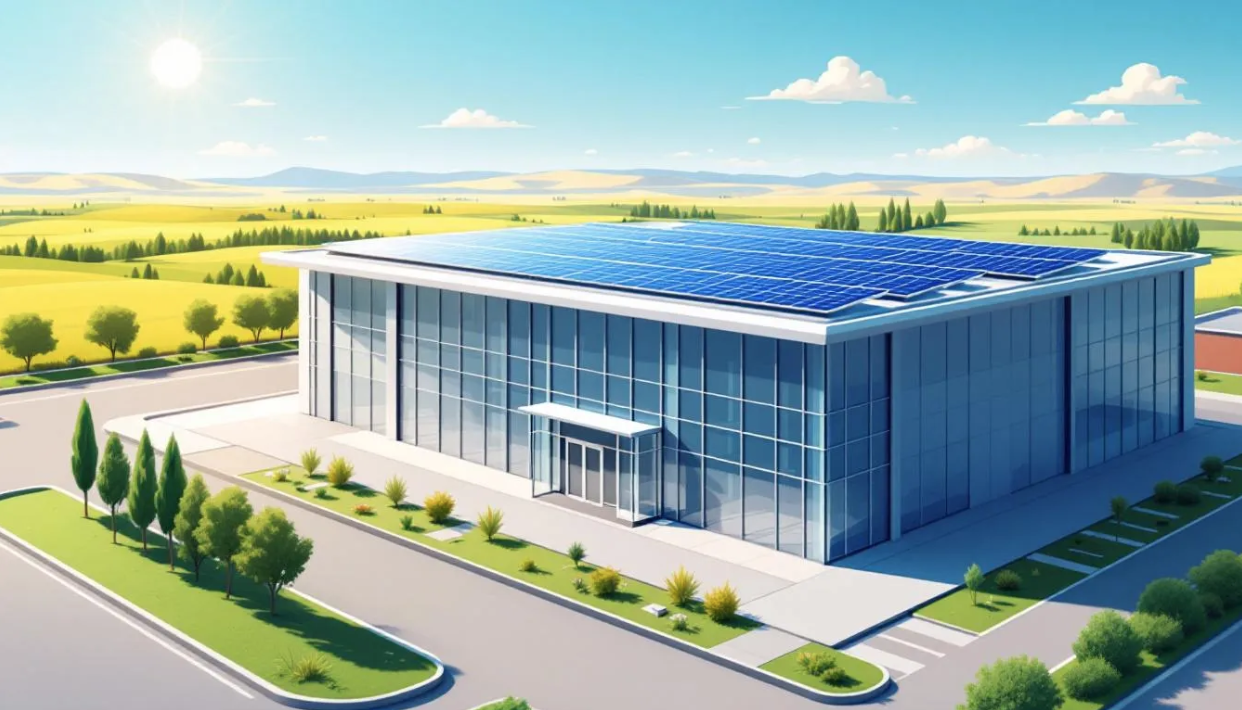
Commercial land owners and farming communities may not know that adopting commercial solar solutions can lead to a new income stream. It can also provide significant cost savings, environmental benefits, and renewable energy. Solar power systems allow businesses to manage rising energy costs effectively, reduce their carbon footprint, reduce electricity bills, and gain greater control over their energy supply.
With the added advantage of government incentives, net metering, and a solar club, solar power can become a compelling option for businesses in Alberta.
Cost Savings and Financial Incentives
Switching to solar can save Alberta businesses thousands in electricity costs over time. Programs like Alberta's Solar Club let you earn credits for excess renewable energy in your system, while net metering ensures nothing goes to waste. You get value for every kilowatt; over time, these savings add up!
With electricity prices on the rise, along with being a clean option, commercial solar panel installations are also a smart financial move. Along with lower utility bills and a solid return on investment, Alberta businesses can benefit from tax credits, grants, and even sell carbon offsets, which may generate hundreds of thousands of dollars in additional revenue over time.
Environmental Benefits
Utilizing solar energy significantly reduces carbon emissions, contributing to a cleaner environment and minimizing environmental impact. Switching to renewable energy sources such as solar power helps businesses lessen their dependence on fossil fuels and conserve natural resources. This shift not only benefits the planet but also promotes a sustainable future for generations to come, ultimately lowering their carbon footprint.
Reducing greenhouse gas emissions is crucial for combating climate change and promoting a healthier planet. Solar installations in commercial buildings and commercial projects can play a vital role in this effort, making businesses environmentally responsible while also enjoying the financial benefits of clean energy.
Energy Independence
Commercial solar projects allow businesses to generate their own electricity while still having the option to purchase additional power if needed. This gives them more control over their energy supply and reduces reliance on traditional utility companies. As a result, businesses can avoid fluctuating energy prices and benefit from more stable, predictable electricity costs.
By reducing dependence on the grid, renewable energy not only supports long-term savings but also boosts energy security. When paired with battery storage, businesses can store excess energy and use it during peak hours, when electricity is most expensive, leading to savings at a greater level. Plus, it all supports a more sustainable and environmentally responsible operation.
Navigating Alberta's Solar Regulations and Incentives
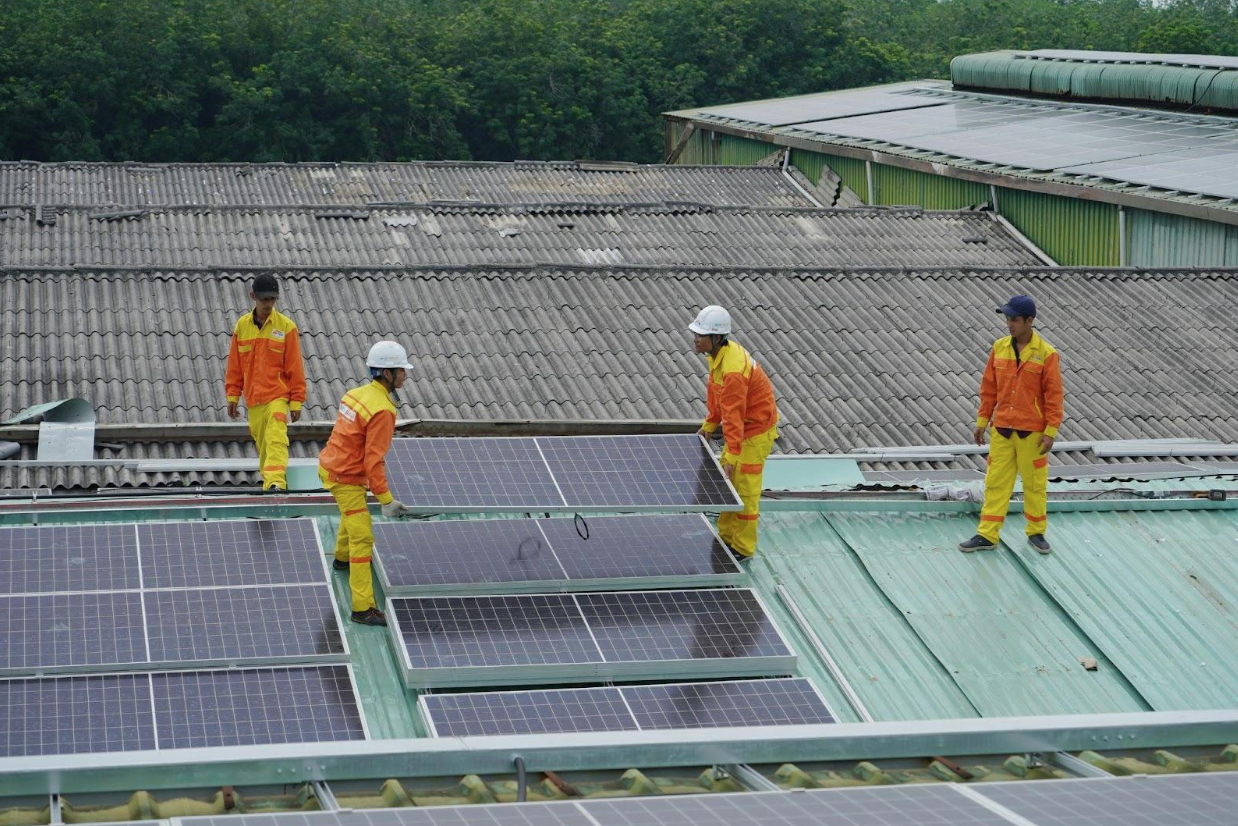
Understanding Local Regulations
Regulations governing solar installations and renewable energy in Alberta require customized designs tailored to local environmental conditions. Proper permitting and paperwork are essential for a smooth installation process. They also help ensure compliance with safety and regulatory standards. This ensures that businesses can harness solar energy efficiently and safely.
Understanding local regulations is essential for compliance and optimal performance of commercial solar installations. Adhering to these regulations helps businesses avoid legal issues and ensures their solar systems operate efficiently. And don't worry, we make it easy to navigate the permits, paperwork, and all the red tape. Our team handles the tricky stuff so you can focus on the benefits, like lower bills and clean energy.
Available Government Incentives
Alberta businesses can leverage some great financial incentives and programs to support their solar energy adoption. There are tax breaks that can lower the upfront energy costs and make investing in renewable energy a lot more affordable, for instance, the Clean Technology Tax Credit for eligible clean tech investments.
Additionally, there are Income Tax incentives that allow businesses to fully write off the value of solar assets in the first year. Which means you get your money back sooner rather than later. All in all, these incentives make going solar not just good for the planet, but a smart move for your business's bottom line too.
These incentives, combined with other financial incentives, can significantly reduce the cost of solar installations and enhance the return on investment. Professional solar panel installation businesses can guide businesses on how to maximize these benefits and navigate the funding initiatives available.
Application Process for Incentives
One of the first steps to making the most of these financial perks is filling out an assessment form. This helps figure out exactly which incentives your business qualifies for and makes the whole application process a lot easier. Plus, if your solar panels produce more renewable energy than you need, you can actually sell that extra power back to the grid. That means you could earn credits or even get paid, helping to lower your energy bills even more.
Assessing Your Business's Solar Potential
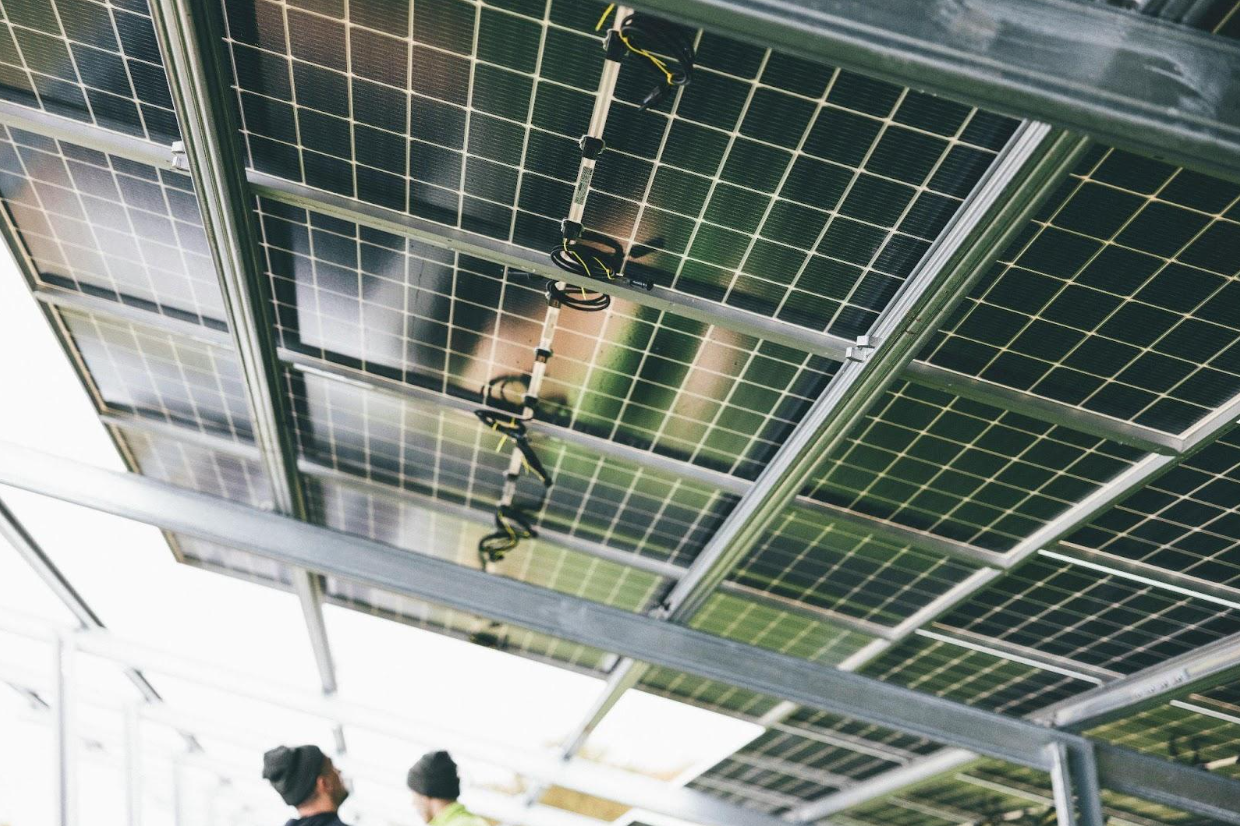
Before making the switch to solar, it's important to see if installing a system actually makes sense for your business. That means looking at things like how much energy your business uses, how much roof space you've got, and how much sunlight your location gets—something Alberta has plenty of!
A thorough assessment can help businesses maximize their solar potential and achieve optimal energy production.
Site Evaluation and Energy Needs Assessment
The purpose of the site assessment in commercial solar system installation is to determine solar potential and provide information for designing an optimized solar system. Factors evaluated during a site assessment include:
- Roof orientation
- Shading analysis
- Available space
- Structural integrity
Obviously, a south-facing orientation will get the most exposure, but determining these elements is crucial for ensuring the efficient and effective installation of solar panels.
A business's or farm's solar energy needs are influenced by factors such as energy consumption, available roof or ground space, and financial goals. Understanding these needs allows for the design of a solar system that meets specific power requirements and maximizes renewable energy production.
Roof Space and Structural Considerations
Key factors for installing solar panels include:
- Adequate roof space to install a sufficient number of solar panels to generate the desired amount of renewable energy.
- Roof orientation, with south-facing roofs generally receiving more sunlight and thus influencing solar panel efficiency.
- Assessing the roof's structural integrity before installation to ensure it can support the additional weight and equipment.
The amount of available roof space dictates the potential energy output and financial benefits of a solar system. Proper assessment and planning can help businesses optimize their solar installations and achieve maximum efficiency.
Ground Installation Considerations
If your business has ample arable land, ground-mounted commercial solar systems can be a great option. They offer more flexibility than rooftop systems and can be positioned to get the best sunlight, something Alberta is great for.
It's important to consider things like how much space you have, the condition of the soil, and how the panels will be angled. Done right, ground installations are easy to maintain and can lead to even bigger energy savings over time.
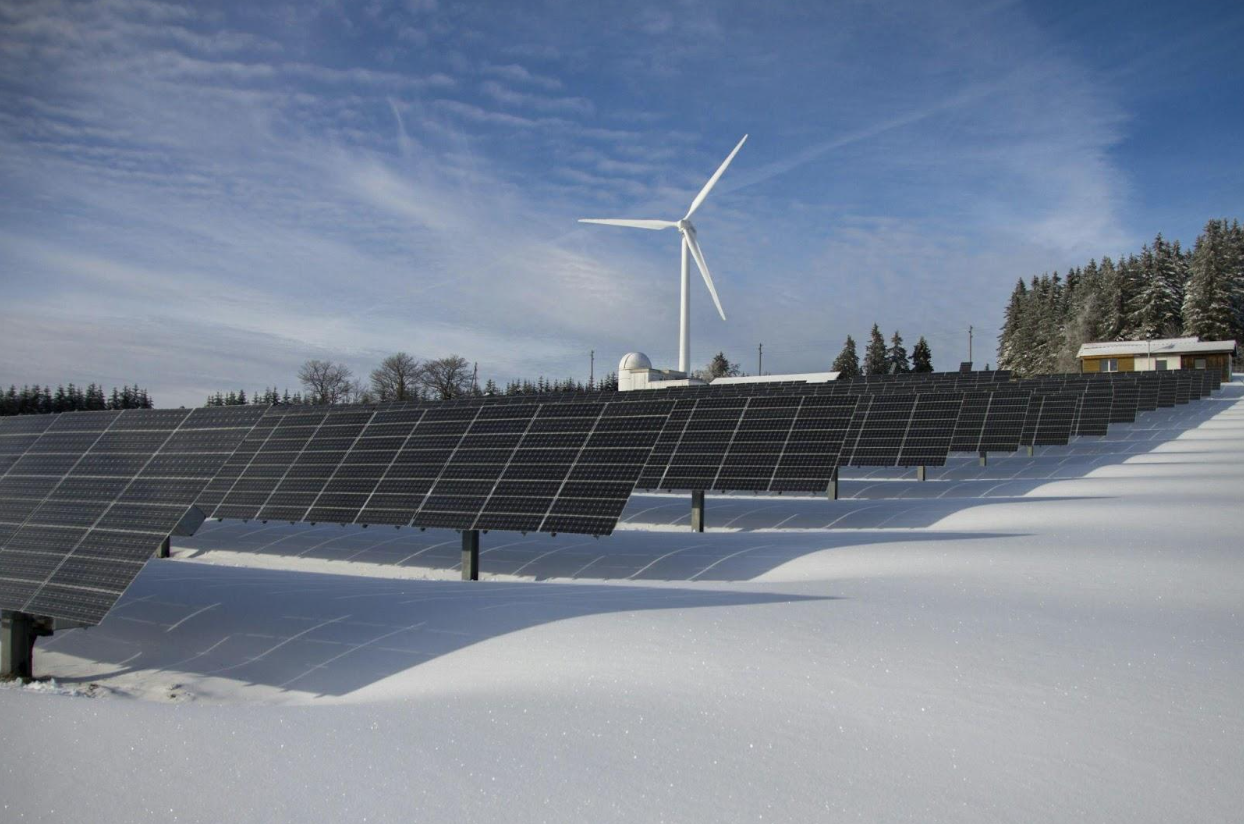
Professional Consultation and Feasibility Studies
Professional assessments and feasibility studies are critical for ensuring that solar systems are designed optimally for specific business needs. A thorough site evaluation examines the physical characteristics of a business's location, while an energy needs assessment establishes the specific power requirements needed from the solar installation. And SolrSolvr can help with all of these elements.
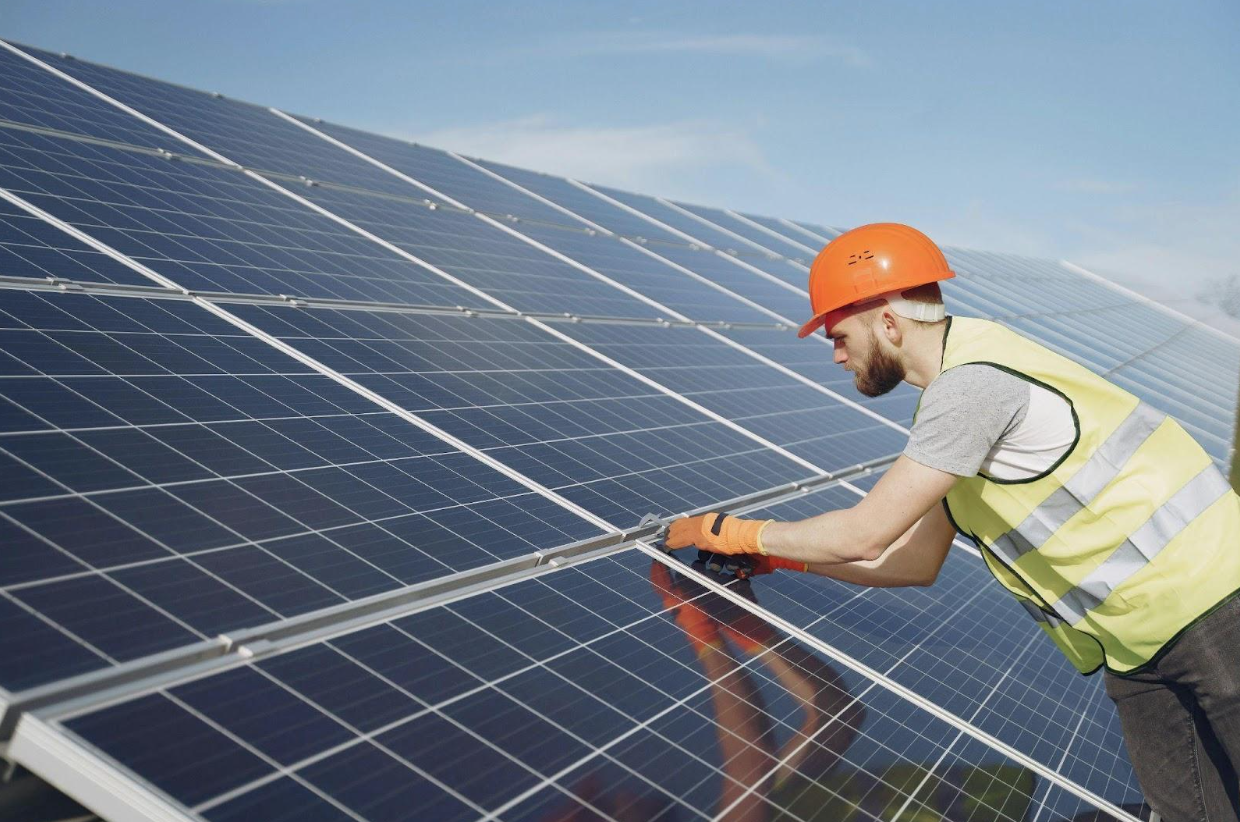
The initial consultation phase includes discussions around the design of the solar system, ensuring efficient renewable energy production aligned with the unique demands of the business. This professional guidance helps businesses make informed decisions and achieve successful solar projects.
Choosing the Right Solar Installer in Alberta
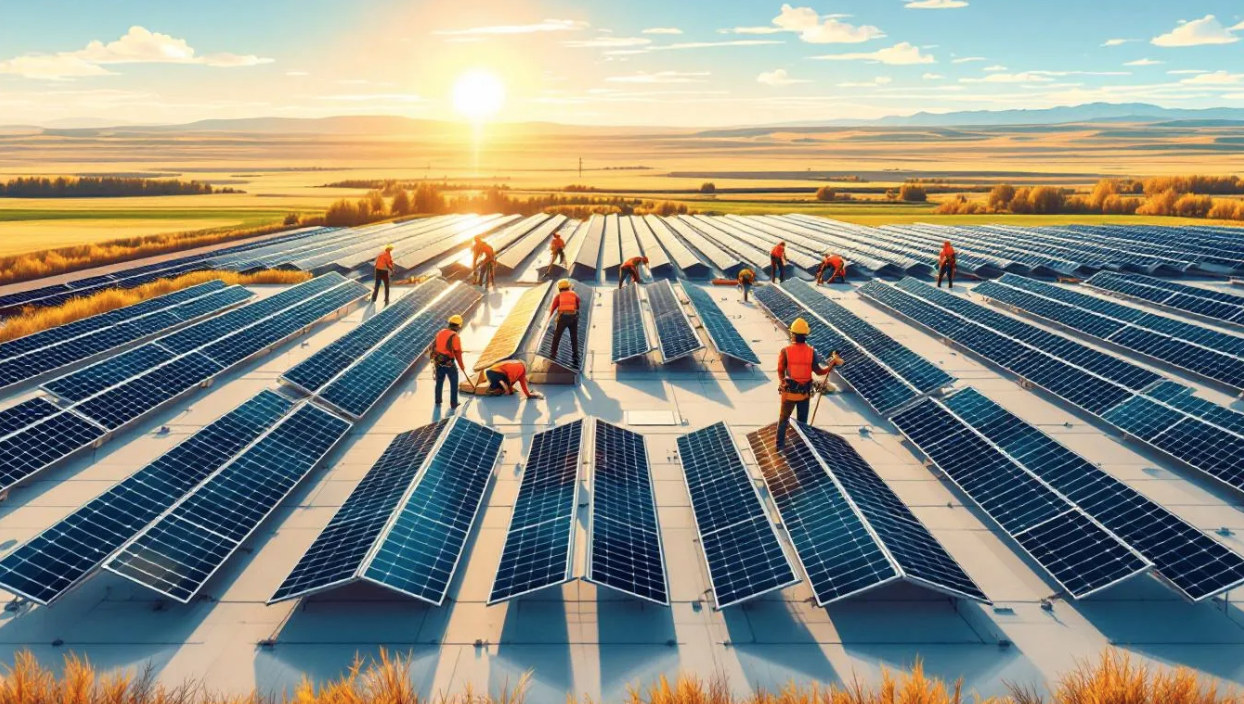
Choosing an experienced solar installer is crucial for successful commercial solar projects. Businesses should compare quotes, check credentials, and assess the number of installations completed by a company to ensure they are selecting the best option for their needs.
Reading customer reviews can also provide insights into the reliability and service quality of solar installers. And that is exactly what SolrSolvr does with our vetted network of companies - helping businesses make smart choices while reducing greenhouse gas emissions and electricity costs through clean, renewable energy solutions.
Researching and Comparing Installers
Soliciting quotes from different installers helps ensure competitive pricing and better options for your solar modules. Businesses should compare the installation costs, credentials, and previous work of various solar installers to make an informed decision.
Assessing the experience and track record of solar installers is equally important. Experienced solar installers with a proven track record are more likely to deliver high-quality installations and reliable service.
Evaluating Installer Experience and Track Record
It goes without saying that requesting references from past projects is crucial to assess an installer's reliability and expertise. Speaking with previous clients can provide valuable insights into the installer's workmanship, communication, and overall satisfaction levels.
Choosing installers with a proven track record of successful installations ensures that the solar project will be handled professionally and efficiently. This experience is vital for navigating the complexities of commercial solar installations and achieving optimal results.
Customer Reviews and Testimonials
Additionally, reading customer testimonials can provide insights into the quality of service and satisfaction levels of previous clients. Positive reviews and high ratings indicate reliable service and successful installations, which are critical for the long-term performance of solar systems.
Customer reviews also highlight any potential issues or concerns that previous clients may have encountered. This information can help businesses make informed decisions when selecting a solar installer, ensuring they choose a company with a proven track record of excellence.
The Commercial Solar Installation Process
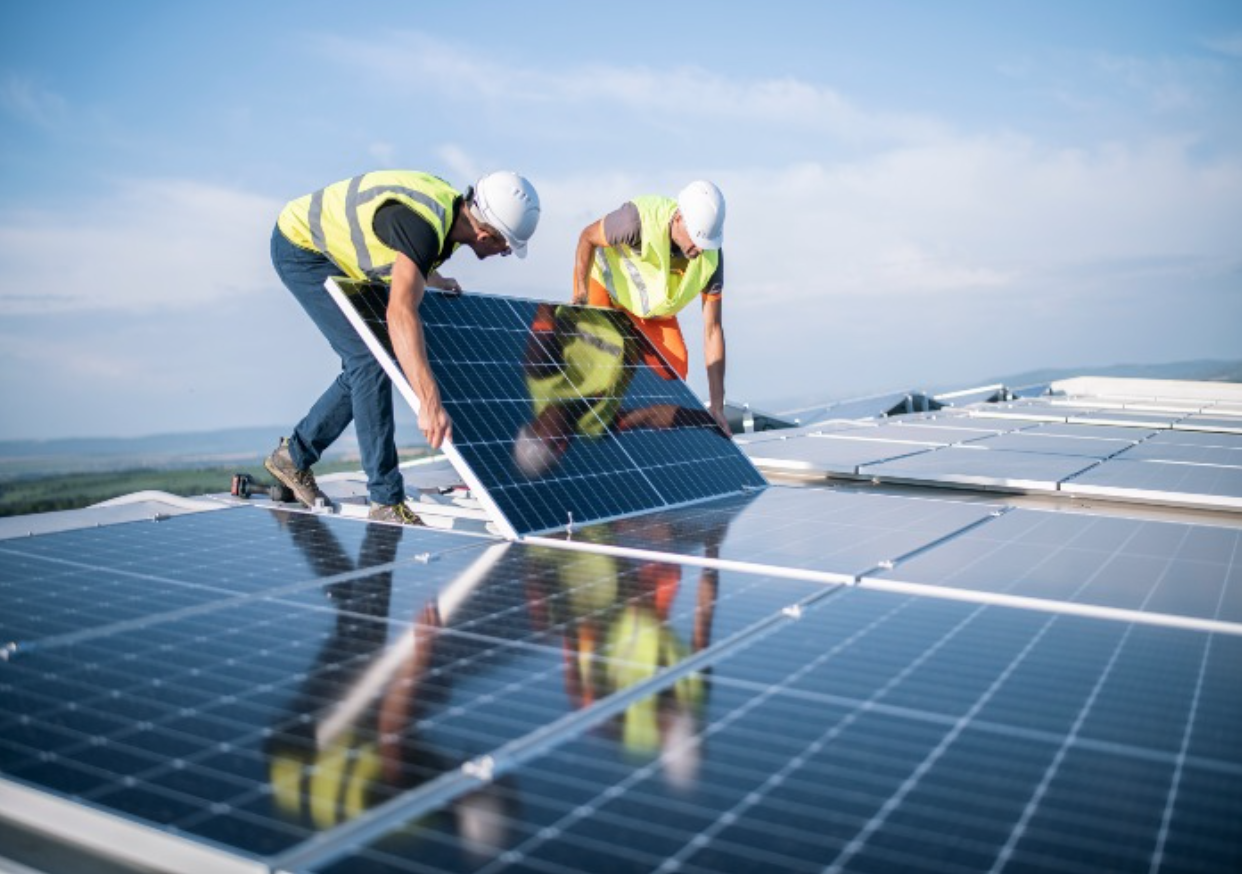
Understanding the installation process is the first step for businesses and farms looking to implement solar panels. The process involves several critical steps:
- Initial consultation and design
- Permitting
- Installation
- Commissioning
Reputable solar module installers guide businesses through each stage to ensure smooth execution and minimal disruption to business operations.
Initial Consultation and Design
The design process for commercial solar systems begins with an initial consultation to understand the business's energy needs and solar potential. During this phase, solar installers conduct site visits to evaluate factors such as roof space, orientation, and energy consumption. These assessments are crucial for designing a custom solar system that meets the unique needs of the business and maximizes energy production.
Customized solar system design ensures that installations are tailored to meet the specific requirements of each business. Considering factors such as energy consumption patterns and available roof space, installers can design a commercial solar panel system that maximizes energy production and efficiency with high quality solar systems, solar pv systems, and system size considerations.
Permitting and Approvals
Necessary permits for solar installations can include:
Building permits
They confirm that the system is structurally safe and suitable for the property's solar potential.
Engineering plans
Detailed engineering plans must be submitted to demonstrate the system's design, layout, and technical specifications.
Electrical permits
These permits help prevent potential hazards and ensure proper grid connection.
Utility approvals
Before connecting to the grid, businesses must get approval from their utility provider for the solar modules.
Obtaining these permits is a critical step before the solar installation can begin. Each type of permit ensures compliance with local regulations, safety standards, and proper integration with the existing electrical infrastructure.
The permitting process can seem daunting, but experienced solar installers can guide businesses through each step to ensure all necessary paperwork is completed correctly and promptly. This ensures a smooth installation process and adherence to all regulatory requirements.
Installation and Commissioning
The physical installation of a commercial solar power system involves mounting solar panels, connecting electrical wiring, and installing support structures as part of the solar panel installation process. This process is carried out with precision and in accordance with industry best practices to ensure the system's safety and efficiency, including solar PV systems, when installing solar panels.
Once the installation is complete, the system is commissioned and connected to the electrical grid. This involves:
- Testing the system to ensure it operates correctly and meets all performance standards.
- Businesses are starting to generate clean and renewable solar energy.
- Potentially feeding excess electricity back into the grid and contributing to electricity generation.
Post-Installation: Maintenance and Monitoring
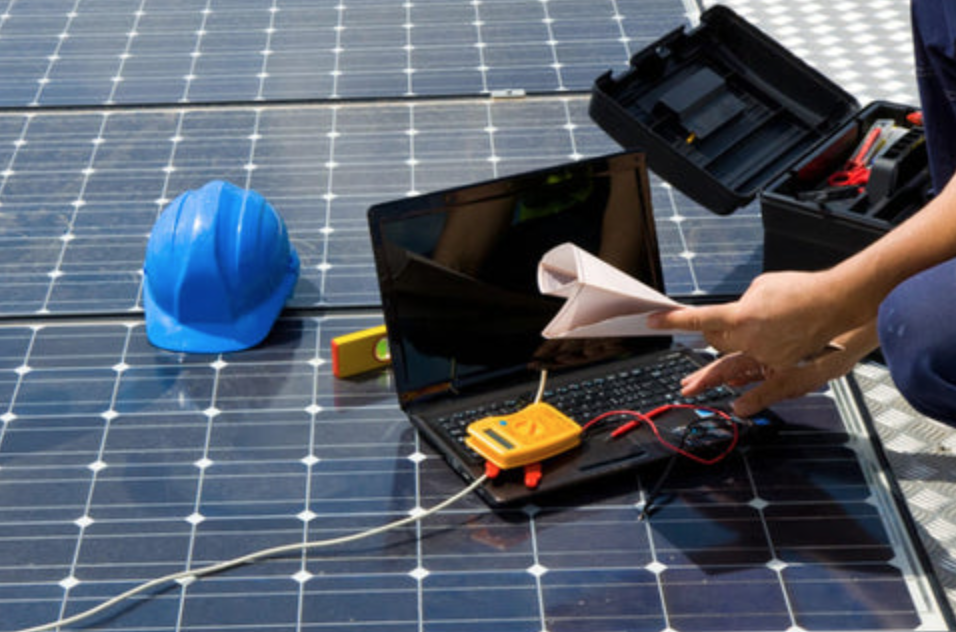
Routine upkeep is essential to prevent costly repairs and enhance the lifespan of solar energy systems. Post-installation practices include:
- Regular maintenance
- Performance monitoring
- Troubleshooting
- System maintenance These steps ensure the solar system operates at maximum efficiency and continues to provide financial and environmental benefits.
Regular Maintenance Practices
Understanding and following maintenance and monitoring plans are essential for ensuring optimal performance of solar installations. Minimal maintenance is required for a commercial solar system, including periodic inspections, cleaning panels, and performance monitoring. Cleaning solar panels removes debris that can hinder their ability to capture sunlight effectively.
Implementing a maintenance and monitoring plan is essential to ensure the continued efficiency of a solar power system after installation. Regular inspections help identify wear and damage, preventing larger issues and ensuring the system operates at maximum efficiency.
Monitoring System Performance
Tracking performance metrics like energy production and system efficiency is crucial for optimal solar operation. Monitoring tools and techniques allow businesses to detect issues early and manage their solar power installations effectively.
Troubleshooting and Support
Troubleshooting is essential to address common issues that may arise during the operation of solar power systems, ensuring their longevity and efficiency. Regular maintenance practices can help prevent potential issues and maintain the efficient operation of solar energy systems.
Monitoring system performance through various tools and techniques allows for early detection of problems. Professional support from experienced solar power installers can provide timely assistance and solutions to any issues, ensuring the system operates smoothly and efficiently.
About Solr Solvr
SolrSolvr serves as your primary online consultant for solar solutions. It caters to both residential and commercial solar installations. We are here to assist you in comparing and understanding quotes. We have a list of vetted, experienced installers for every corner of Canada. Our goal is to provide information on the latest incentive programs and to work transparently in your best interest during the decision-making process.
Cities We Work In
We proudly serve the main population zones of Alberta and western Canada. This includes cities such as:
- Calgary
- Edmonton
- Red Deer
- Lethbridge
- Airdrie
- Fort McMurray
- Medicine Hat
Contact us today to see if we serve your area and to get started on your path to a cleaner, more sustainable future.
Summary
Transitioning to solar power is a smart move for businesses of all sizes in Alberta. With significant cost savings, environmental benefits, and energy independence, commercial solar installations offer a sustainable and financially viable solution.
By understanding local regulations, taking advantage of government incentives, and choosing the right installer, businesses can successfully implement commercial solar system projects and reap the rewards for years to come. Ready to make the switch? Contact SolrSolvr today and start your journey towards a brighter, greener future.
Frequently Asked Questions
What are the financial benefits of installing solar panels for my business in Alberta?
Installing solar panels for your business in Alberta can lead to substantial savings on electricity bills, access to government incentives, and opportunities to generate additional revenue through carbon offsets. These financial benefits position solar energy as a smart investment for long-term sustainability and cost reduction.
How does solar energy contribute to environmental sustainability?
Solar energy significantly contributes to environmental sustainability by reducing carbon emissions, lessening dependence on fossil fuels, and conserving natural resources, all of which promote a cleaner and healthier planet.
What regulations must I comply with for commercial solar system installations in Alberta?
You must comply with local regulations in Alberta, which require customized designs, proper permitting, and adherence to safety and efficiency standards for solar installations. Ensuring compliance will facilitate a smoother installation process and promote safety.
How do I apply for government incentives for solar installations?
To apply for government incentives for commercial solar system installations, complete an assessment form to determine applicable incentives, and explore opportunities for tax credits, grants, and potential revenue from selling excess energy back to the grid.
What post-installation practices are necessary to maintain my solar system?
To maintain your commercial solar panel system, it's essential to conduct regular inspections, clean the panels, and monitor performance periodically. These practices will help ensure your system operates efficiently and delivers optimal benefits over time.


